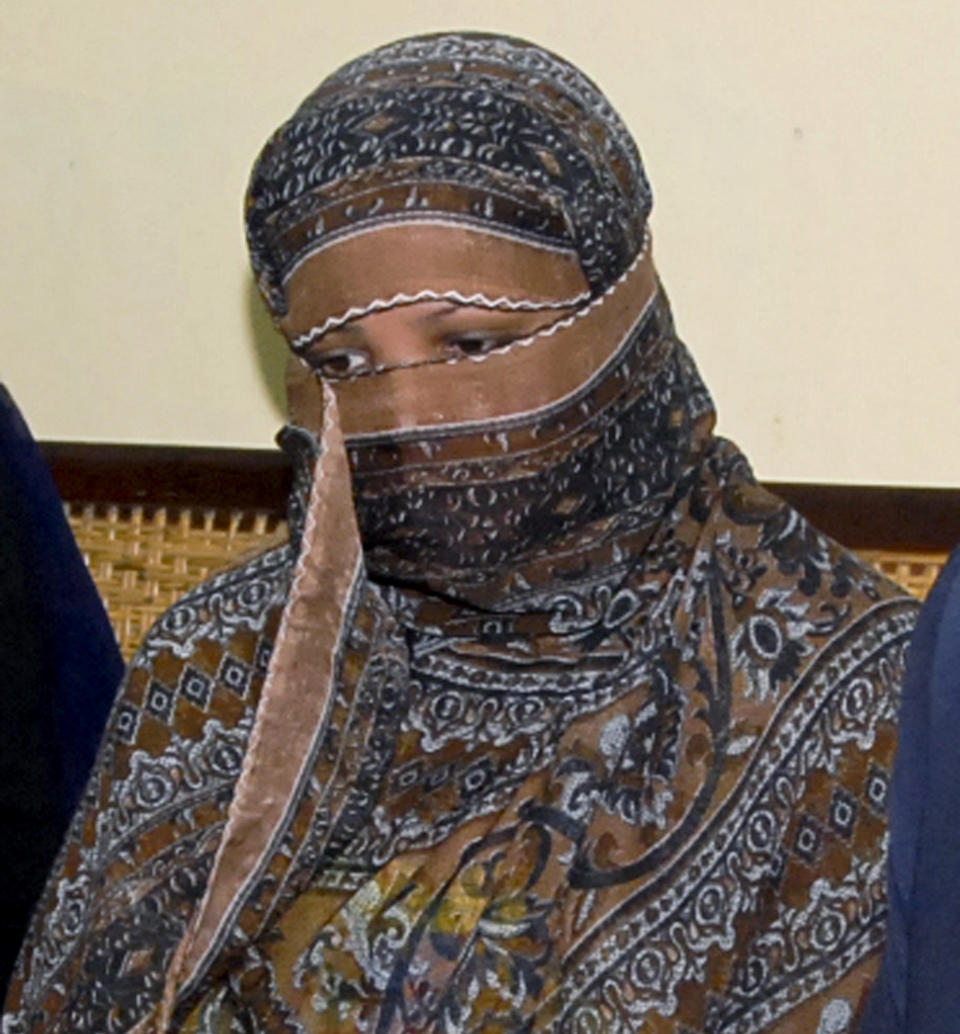UK allowing policy to be dictated by Pakistani mob, minister told
A senior Conservative backbencher has accused ministers of allowing British Government policy to be dictated by a Pakistani mob by failing to offer asylum to Christian woman Asia Bibi.
Tom Tugendhat demanded to see evaluations of a programme designed to support public confidence in the rule of law in Pakistan, which is funded by more than £9 million a year of British taxpayers’ money.
The Tory MP told Theresa May’s effective deputy David Lidington he was “deeply concerned” that the UK may be throwing “good money after bad” by continuing to fund the Pakistani legal system in the light of the persecution of Ms Bibi.
The Christian woman was held for eight years under a death sentence for supposed blasphemy after she drank from the same well as Muslim co-workers, before her conviction was reversed by the Pakistani Supreme Court last month. Large crowds have taken to the streets in Pakistan to protest against the court’s decision.
What are @FCOHumanRights if they don’t include #AsiaBibi? @CommonsForeign is clear this innocent Christian woman is facing oppression because of her faith. I’m asking ministers about her freedom of conscience again today in #JCNSS https://t.co/mwBShUFsDp
— Tom Tugendhat (@TomTugendhat) November 19, 2018
Grilling Mr Lidington at a session of the parliamentary Joint Committee on the National Security Strategy, Mr Tugendhat warned that by continuing to fund the programme, the UK was allowing its policy on human rights to be “held hostage”.
“What we are dealing with here is a situation in which the policy of the UK Government is being decided by a Pakistani mob,” said the Tonbridge & Malling MP, who also chairs the Commons Foreign Affairs Committee.
Mr Tugendhat said there could be few more deserving beneficiaries of the right to asylum than Ms Bibi and her family, who have so far been unable to leave Pakistan.
But he told the committee the Foreign Office’s senior civil servant had suggested that she may not be offered sanctuary by Britain because of the “security implications for Pakistan and the UK”.
“That does raise some serious questions about our policy as a country and what we are willing to stand up for,” said Mr Tugendhat.
Releasing evaluations of the value for money of the Rule of Law in Pakistan Programme would allow MPs to scrutinise whether UK Government personnel and resources were being used “as a means of holding our own policy hostage or indeed as leverage for a Pakistani mob”, he said.
The programme is funded in 2018/19 by £9.32 million of overseas aid and an undisclosed amount of other UK money, said Mr Tugendhat.
While he supported the goal of building the capability of the Pakistani judicial institutions, he said: “It is the results I am seeing which leave me deeply concerned.
“There comes a point where we must ask ourselves is the money we are putting in good money after bad, or is it making a difference?
“When you look at the way we have handled other abuses of minorities by other countries, where we have withheld funding or closed programmes, this does raise some serious questions about our very significant assistance to the Government of Pakistan and the current government’s seeming tolerance of extremist violence and propaganda against human rights.”
Mr Lidington said he shared the MP’s “horror and outrage” at the treatment of Ms Bibi.
But he said: “I would deny the proposition that the UK policy is being determined by a mob in Pakistan.
“We do have a law which requires each asylum case to be assessed on its merits. I know the Home Secretary is determined that, should this case come before him, he would have that dealt with in the same way on its merits.”
Mr Lidington said that there were “international conversations going on” about how to help Ms Bibi and her family live in safety, but declined to give further details.
He said he would seek advice on whether to release the evaluation report.
Mr Lidington said that “all relevant information” would be taken into account when deciding on future aid funding to Pakistan.
The Bibi case highlighted the difficulty Pakistan faces with the tolerance for extremist views among parts of its officialdom as well as the general population, he told the committee.

 Yahoo News
Yahoo News 

